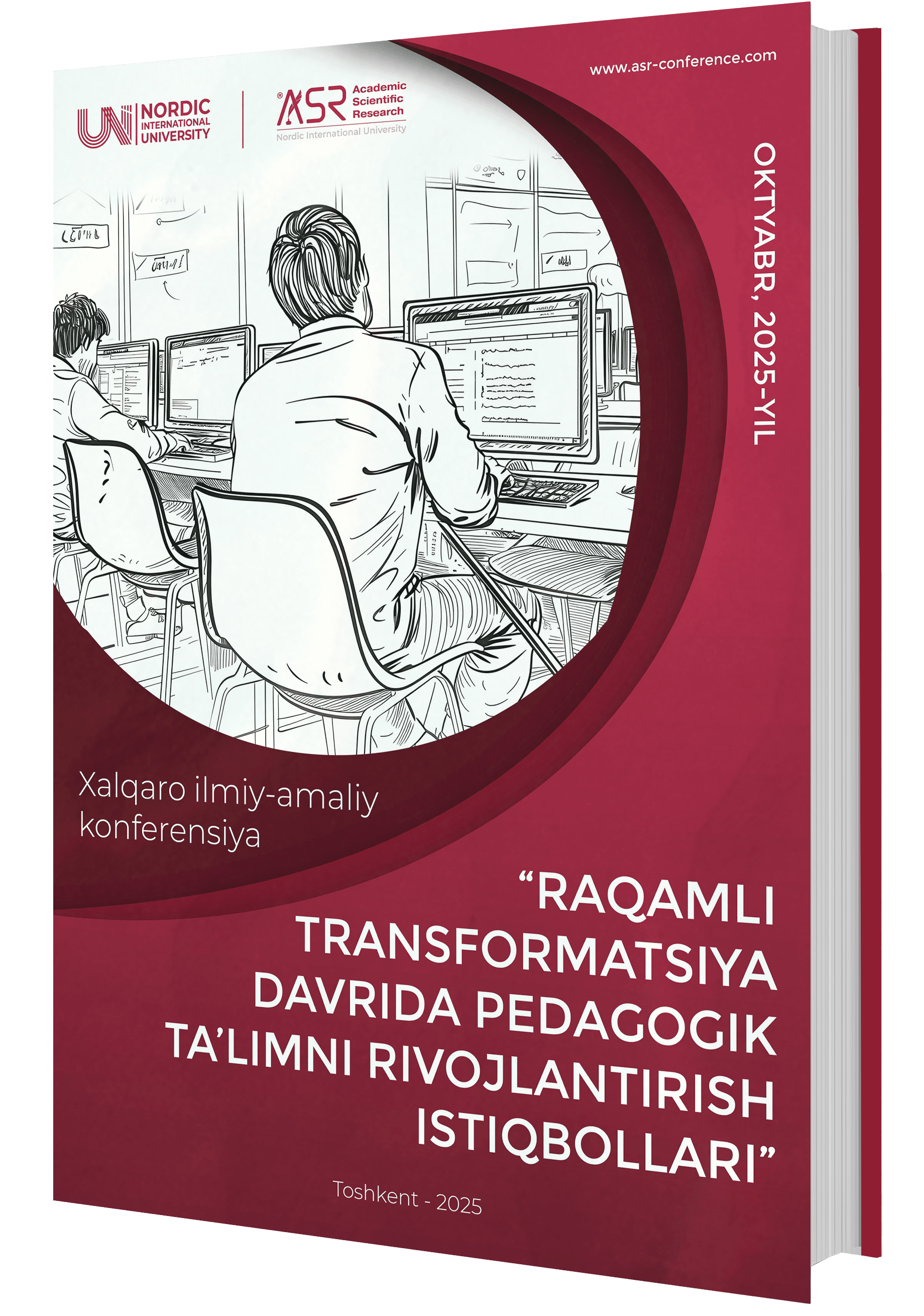INTEGRATING STEM AND ARTIFICIAL INTELLIGENCE IN TEACHING NANOTECHNOLOGY TO PROSPECTIVE PHYSICS TEACHERS
Аннотация
This article analyzes the pedagogical possibilities of integrating STEM-educational methodologies and artificial intelligence technologies in the teaching of nanotechnology to future physics teachers. The relevance of the study is determined by the need for a new organization of teaching physics in the conditions of rapid development of science and technology. The goal is to identify innovative approaches aimed at improving the professional competence of future teachers, developing their research skills and increasing the level of digital literacy.
The research methods used were a review of scientific literature, comparative analysis, observation of pedagogical practice and a survey. As a result, it was found that STEM-projects and artificial intelligence tools (virtual laboratories, intelligent testing systems, adaptive learning platforms) increase students' interest in the subject and facilitate the mastery of complex nanotechnological concepts. In addition, it was noted that this approach develops creative thinking and research competence of future teachers.
During the discussion, along with the advantages of this method, some limitations were also highlighted: insufficient material and technical base, the level of teachers' mastery of new technologies, the complexity of integration into the curriculum. In conclusion, it was proven that the integration of STEM and artificial intelligence is an effective way to improve the professional training of future physics teachers. This direction allows for the formation of an innovative model in pedagogical education that meets modern requirements.
Библиографические ссылки
Gocmen, A., Karabulut, H., & Kariper, I. A. (2024). Review of studies conducted in nanotechnology education: A meta-synthesis study. Discover Education, 3, 169. https://doi.org/10.1007/s44217-024-00277-6
Cavdar, O., Yıldırım, B., Kaya, E., & Akkus, A. (2024). Exploring the Nanoworld: Middle School Students Use TRIZ–STEM in Nanotechnology Education. Journal of Chemical Education, 101(3), 1049-1061. https://doi.org/10.1021/acs.jchemed.3c01031
Sydykova, Z. K., & Naushabekov, Z. (2024). The effectiveness of STEM education in school physics. Modern Scientific Method, (6). https://ojs.publisher.agency/index.php/MSM/article/view/3398 ojs.publisher.agency
Lee, G., Yun, M., & Zhai, X. et al. (2025). Artificial Intelligence in Science Education Research: Current States and Challenges. Journal of Science Education and Technology. https://doi.org/10.1007/s10956-025-10239-8
Jiang, Z., & Jiang, M. (2024). Beyond Answers: Large Language Model-Powered Tutoring System in Physics Education for Deep Learning and Precise Understanding. arXiv Preprint. arXiv:2406.10934. https://doi.org/10.48550/arXiv.2406.10934
Cao, C., Ding, Z., Lee, G.-G., Jiao, J., Lin, J., & Zhai, X. (2023). Elucidating STEM concepts through generative AI: A multi-modal exploration of analogical reasoning. arXiv Preprint. arXiv:2308.10454. https://doi.org/10.48550/arXiv.2308.10454
Загрузки
Опубликован
Выпуск
Раздел
Лицензия
Copyright (c) 2025 Anas B., Ali C., M. Skakov

Это произведение доступно по лицензии Creative Commons «Attribution-NonCommercial» («Атрибуция — Некоммерческое использование») 4.0 Всемирная.
Условия лицензии
Эта работа доступна под лицензией Creative Commons Attribution-NonCommercial 4.0 International License. Чтобы просмотреть копию этой лицензии, посетите http://creativecommons.org/licenses/by-nc/4.0/ или отправьте письмо по адресу Creative Commons, PO Box 1866, Mountain View, CA 94042, США.
По этой лицензии вы можете:
Поделиться — копируйте и распространяйте материал на любом носителе и в любом формате.
Адаптируйте — делайте ремиксы, трансформируйте и дорабатывайте материал.
Лицензиар не может отозвать эти свободы, если вы соблюдаете условия лицензии. На следующих условиях:
Атрибуция. Вы должны указать соответствующую ссылку, предоставить ссылку на лицензию и указать, были ли внесены изменения. Вы можете сделать это любым разумным способом, но не таким образом, который бы предполагал, что лицензиар одобряет вас или ваше использование.
Некоммерческое использование — вы не имеете права использовать материал в коммерческих целях.
Никаких дополнительных ограничений. Вы не имеете права применять юридические условия или технологические меры, которые юридически запрещают другим делать все, что разрешено лицензией.





